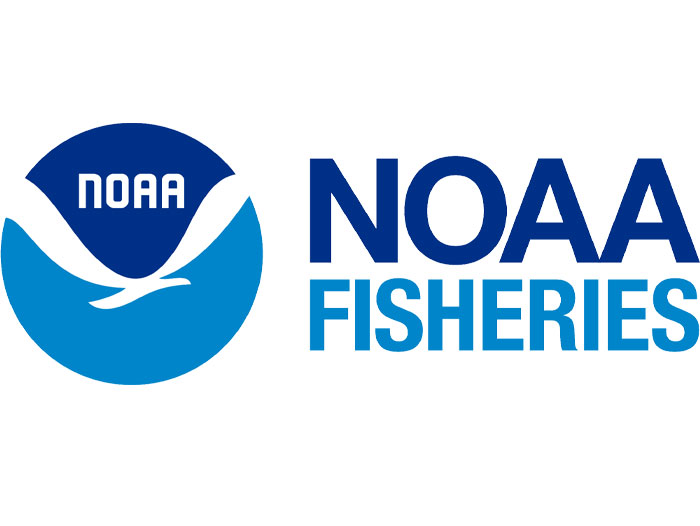Revised Reporting Requirements for Federally Permitted Seafood Dealers and Assistance for Fishermen Impacted by Hurricane Helene
October 3, 2024 | 7 min to read
Hurricane Helene made landfall near Perry, Florida, as a Category 4 hurricane on September 26, 2024, prompting NOAA Fisheries to declare catastrophic conditions in multiple counties in Florida and Georgia. Affected federal permit holders lacking electronic reporting access are authorized to use paper-based reporting for red snapper and grouper-tilefish until November 1, 2024. Furthermore, NOAA Fisheries aims to support recovery efforts, including potential disaster assistance for the fishing industry.

Key Message:
- Hurricane Helene made landfall in the U.S. near Perry, Florida, in the Gulf of Mexico as a Category 4 hurricane on September 26, 2024.
- For those who do not have access to electronic reporting, Federal regulations provide for alternative reporting requirements (e.g., paper-based or delayed reporting) in the event of catastrophic conditions. These regulations require NOAA Fisheries to determine when the catastrophic conditions exist, the duration of the catastrophic conditions, and which participants or geographic areas are affected. Participants must continue to use the electronic systems if it is accessible.
- NOAA Fisheries has determined that catastrophic conditions exist in the following counties:
- Florida
- Jefferson, Taylor, Dixie, Levy, Citrus, Hernando, Pasco, Pinellas
- Georgia
- Chatham, Bryan, Liberty, McIntosh, Glynn, and Camden
- Therefore, for any federal permit holders in the affected area who does not have access to electronic reporting, NOAA Fisheries is authorizing, through November 1, 2024:
- The use of paper-based reporting forms for red snapper and grouper-tilefish individual fishing quota (IFQ) participants.
- Delayed reporting of trip tickets to NOAA Fisheries; and
- Dealers are to report all landings through the state trip ticket program as soon as possible.
- Any Federal for-hire operator in the Southeast Region Headboat Survey program or in the Southeast For-Hire Integrated Electronic Reporting (SEFHIER) program in the affected areas that does not have access to electronic reporting is authorized for delayed reporting.
- NOAA Fisheries will continue to monitor and reevaluate the areas and duration of the catastrophic conditions. A subsequent Fishery Bulletin will be published if reporting requirements are extended.
- Florida
More Information:
- IFQ Participants
- The electronic systems for submitting landings and IFQ information to NOAA Fisheries will continue to be available to all dealers. Participants must continue to use the electronic systems if it is accessible.
- NOAA Fisheries has previously provided IFQ dealers with the necessary paper forms and instructions for reporting during catastrophic conditions. Assistance in complying with the requirements of the paper-based system will be available via IFQ customer service: 866-425-7627 Monday through Friday between 8:00 a.m. and 4:30 p.m. Eastern Time.
- Paper forms are also available upon request by calling IFQ customer service at 866-425-7627 or by writing:
NOAA Fisheries
Southeast Regional Office
Sustainable Fisheries Division
263 13th Avenue South
St. Petersburg, Florida 33701-5505
- The IFQ program functions available to participants in the geographic area affected by catastrophic conditions will be limited for those using the paper-based system. There will be no mechanism for transfers of IFQ shares or allocation for those using the paper-based system during catastrophic conditions.
What Other Assistance Is Available From NOAA Fisheries:
- Like many Americans, NOAA Fisheries’ Southeast Regional Office has experienced and witnessed the devastation to our coastal communities and resources in the southeast over the last several days.
- Our first concern is public safety, including what we can do to help our federal and state agency partners immediately activate recovery efforts.
- Secondly, we will work with those partners to ensure the fishery disaster determination process can be as efficient and effective as possible in helping the fishing industry recover.
- In addition to this determination of catastrophic conditions and working with our fishermen to address permitting concerns, NOAA Fisheries may be able to provide financial assistance to reimburse losses due to a fishery resource disaster.
- Disaster assistance is administered under section 312(a) of the Magnuson-Stevens Fishery Conservation and Management Act a. A state governor, tribal representative, or other comparable elected or politically appointed representative as determined by the Secretary of Commerce can request a fishery disaster determination.
- In addition to revenue losses in the commercial sector of a fishery, fishery disaster determinations may also be based on revenue losses in the for-hire and processing sectors, as well as adverse impacts on the subsistence sector.
- The Secretary may also initiate a review. If the Secretary determines that a fishery disaster has occurred, the fishery is eligible for disaster assistance subject to appropriation of funds by Congress.
- The impacted state or territory will be responsible for disbursement of funds according to a spend plan approved by NOAA Fisheries.
- For more information about this process, please see our frequently asked questions.
- If the Secretary has determined a fishery resource disaster has occurred, then small fishing-related businesses may qualify for certain Small Business Administration (SBA) Helene Disaster Assistance loans, which can, in certain cases, help address economic injury and physical damage.
- Additional resources provided by FEMA for Helene Assistance may assist with housing and home repair, personal property replacement, and unemployment. Apply through DisasterAssistance.gov, the FEMA mobile app, or by calling 1-800-621-3362.
- Disaster Recovery Dislocated Worker Grants (DWGs) provide disaster-relief employment, as well as employment and training services to minimize the impact of large, unexpected emergencies and natural disasters causing significant job losses. Disaster Recovery DWGs create temporary employment opportunities to assist with clean-up and recovery efforts and provide humanitarian assistance in impacted areas. The funding may also be used to temporarily expand capacity to serve dislocated workers and meet the increased demand for employment and training services, thus enhancing their employability and earnings.
